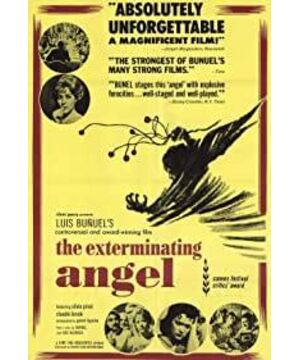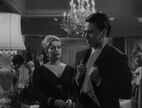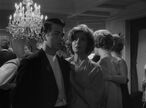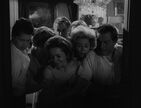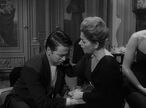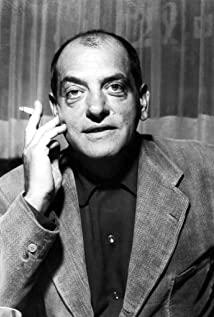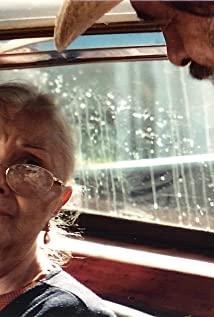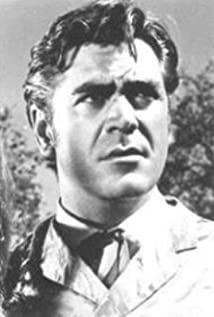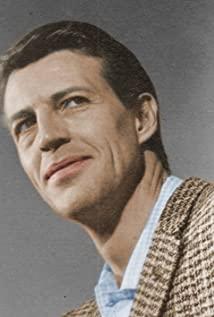The exterminating angel is a surreal work by Spanish director Luis Buñuel in 1962.
The movie is generally about a group of high-society people trapped in a room, and the specific plot is posted at the end of the article. This setting is very reminiscent of sea puzzle materials, such as "Odyssey", "Robinson Crusoe", "Lord of the Flies" and so on. Shipwreck survivors living on isolated islands are faced with the lack of a world and a frame of reference. I am afraid that there are many ethical and sociological discussions inspired by the desperation of such isolated islands. In the word "survive", "sur" means "over" and "vive" is equivalent to "life". It might be said that survivors are those who have to live after the stream of life has been cut off.
The works of post-apocalyptic fantasy are always closely related to the end of the day, and the title itself points out this point (the "Bible Revelation" chapter of the end of the day, there is a description of angels bringing devastating disasters). "Doomsday" means the end. In the film "Destroy the Angel", there is both the end of space and the end of time. The former is marked by the walls of the room, the latter is the end of the party. If we regard the religious "doomsday" as the last hope, the other side of the shipwreck survivors, then one of the questions is: Is there really anyone on the other side? Is the world more to look forward to beyond the walls of a closed room? The scene in the movie where soldiers with guns are arresting democracy on the street seems to be a denial of this. I read it earlier from the perspective of the political situation during Franco's dictatorship, and I won't go into details here.
When discussing "After the End," it's important to note that director Luis Buñuel's view of time is more cyclical. At the beginning of the film, the scene where the guests first arrived before the steps is repeated twice, and the speech of a guest is repeated twice... There are no less than 20 repetitions in the film. The closed time and space trap the guests in the repeated occurrences. in the event. It is closer to the repetition of the doomsday than the "doomsday judgment". "The wheel fell before the cross," Borges wrote in "The Theologian." The first heresy the theologians had to face was the "circular" sect that advocated the cycle of time. The idea of Eternal Reincarnation describes the progression of time as a loop; Christianity is marked by its one-way, linear, notion of time leading to final judgment. It can be seen that the time cycle theory and Christian theology are fundamentally opposed in the world view. It is for this reason that Augustine said in Book XII of the City of God: "Jesus is the straight road that leads the ungodly out of the circular labyrinth". (It's not surprising, though, that Luis Buñuel subscribes to circularism, since he himself said, "Thank God! I'm an atheist.") The film's obvious religious references also include the recurring sheep/flock. The Lord is referred to as the "shepherd" many times in the Bible, for example, "The Lord is my shepherd, and I shall not want. He makes me lie down in green pastures, and leads me beside still waters. revive my soul, and guide me in the paths of righteousness for the sake of my name" (Psalm 23:1-3). Are the free-roaming flocks in the film and the people trapped by the circular time also another question of the director about religion?
A more direct sociological reading is that this film, like several other works such as Luis Buñuel's The Golden Age (1930) and Bourgeois Ridiculous Charm (1972), is a satire of Bourgeois. That is, "it is harder for a rich man to go to heaven than for a camel to pass through the eye of a needle". When discussing the plight of the poor, the upper-class women in the film came to the conclusion: "The poor have a duller perception of pain", which is said to come from Buñuel's friend Dali, who was sarcastic by Buñuel, which seems to be their break-up. one of the reasons.
According to Marx, "History always repeats itself, the first time a tragedy, and the next time it becomes a comedy". In his view, class struggle is the "engine" of history, the end of the capitalist world means the end of natural history, and then, the beginning of human history. However, there is no revolution in Buñuel's film, and the servants who represent the proletariat leave in droves at the outset, leaving only the so-called bourgeoisie. In the "room" without the proletariat, the social conventions, moral values, aesthetics and pretense of the bourgeoisie gradually crumble. A more metaphorical shot: people in the room smash the walls and drink water from pipes. Finally, use a delicate carved container to hold the falling stones and throw the crushed stones outward. In aristocratic society, a container that was endowed with power meaning, specified specific functions, and possessed aesthetic value, lost its original meaning in a certain doomsday situation where the social system collapsed. This is also related to the Surrealist movement's rebellion against the idea of reality under rational control.
So, rather than saying that "Angel of Destruction" introduces the end of the world, it introduces the end of a world. While the people in the room are heading towards a certain end in the destruction of social order and humanity, the sheep and black bears can still move freely. In the film, the distance between humans and animals is built on a layer of illusion that looks solid but is actually weak. Everyone in the room has their own ugly and dirty secrets; on the grounds of "the last dignity of human beings", the doctor who prevented the guests from killing the host was threatened by everyone, and the sense of social rules and morality were broken at the touch of a button. . William Golding's Lord of the Flies also deals with the question of how humans will live after the world and its frame of reference are gone. Children trapped on a desert island, with absolutely no guidance from adults, build a fragile civilization. Ultimately, due to the dark side of the human heart, this system was inevitably replaced by brutality and violence. From neat clothes to nakedness, it has witnessed the process of these well-educated children's degeneration from civilization to barbarism. A similar technique is also used in "Destroy the Angels".
If the "room that cannot go out" is regarded as a model of a closed society, a static and isolated legal and religious system according to Bergson; and as Karl Popper adds, regime change can only be accomplished through violent revolution . Well, the ending where people escaped from the house and was locked up in the church would explain it. Guests trapped in a closed, religious ideology have difficulty stepping out of the door; outsiders standing in different barriers also face insurmountable obstacles. "Can't get out" and "Can't get in" are just different forms of captivity. Only a child holding a balloon took a few steps towards the "inside the courtyard" in a state of semi-empty spirit.
Only in the desperate situation of spiritual collapse, almost killing each other, can the barriers of closed society be broken down. This process is close to a model of an open society: Popper sees the open society as a historical continuum. The guest escapes the room through repetition of the past, becoming the so-called "survivor"; becoming "the person who must live after the stream of life is cut off"; becoming the person who comes out of the small room and steps into the big room. The survivors ended up congregating in the bell-ringing church until the repeated sound waves struck a depression in the surface of the bronze bell. In a sense, the church also symbolizes the reconstruction of the bourgeois social system, another round of closure and circulation. The Angel of Destruction pointed the finger at the same hypocritical Catholic Church, and a new closed society was established. If "room" is a parody of "church", then "church" is a parody of "world". Of course, another way of interpreting it is: the expanded enclosed space is another link in the historical development process, and it will eventually be expanded again. This may be a less strict, but more optimistic circular theory.
In fact, these unsubstantiated statements are not enough to show Luis Buñuel's view of the "post-apocalypse", is the other side of the island empty? Will there be remnants or rebirths after the apocalypse?
Those who rest on their laurels in the house can't find any reason to leave the party in the end of time and space they have created. But don't forget: they didn't have any reason to come to the party in the first place either.
[Plot] The Nobils entertain friends at home. Just as twenty guests arrived, the cooks and servants left for no reason, leaving only the butler. After the banquet, the guests watched one of the guests play the piano in the living room, but no one planned to leave after the banquet. Everyone fell asleep in the house, and woke up early in the morning to find that no one could leave. As soon as they walked to the door, they paid attention. The group was trapped for several days, and people outside the house could not enter. Overwhelmed by hunger, thirst, fatigue and fear, these upper-class men and women began to quarrel, cry, and even threaten to kill their masters regardless of their status.
View more about The Exterminating Angel reviews


